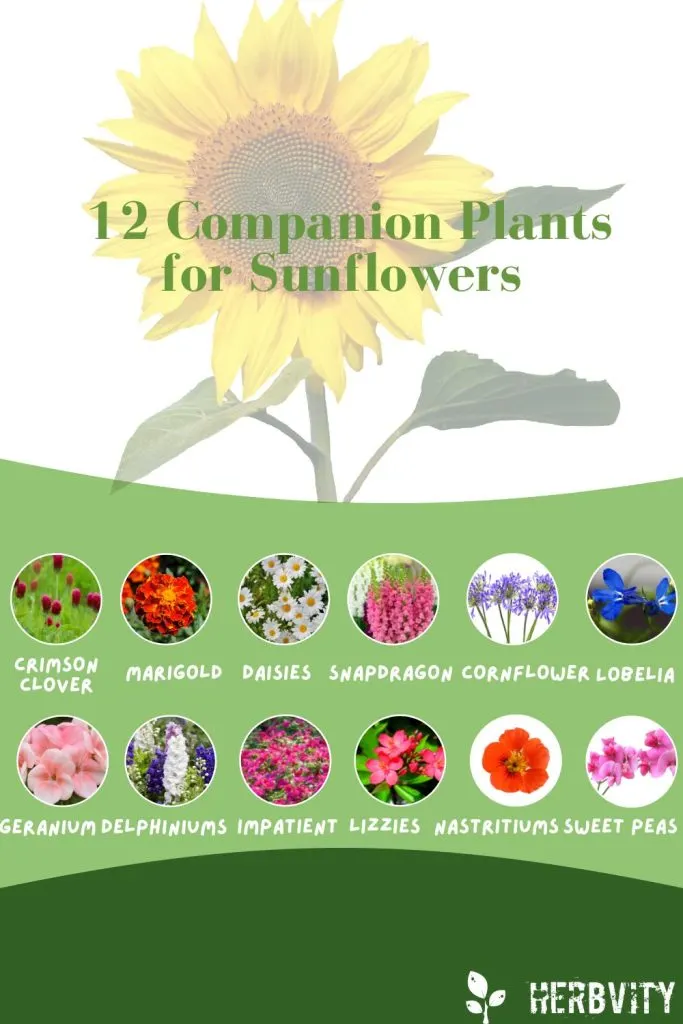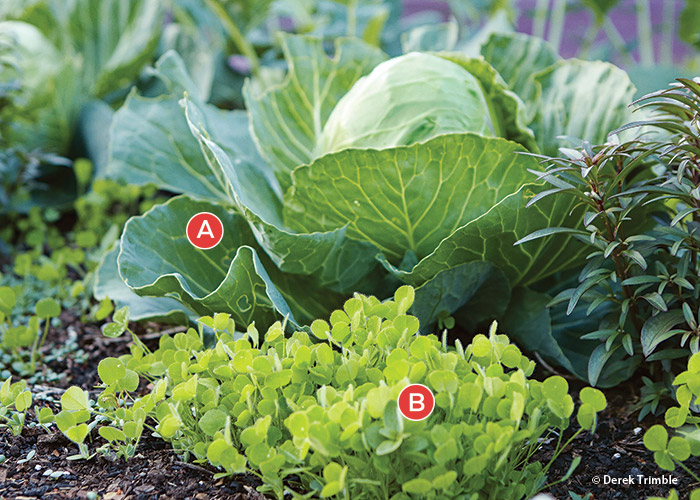Crimson Clover Companion Plants That Will Boost Your Garden
Crimson clover is a beautiful, nitrogen-fixing legume that can be a valuable addition to any garden. It's also a great companion plant for a variety of other crops, and can help to improve soil health, suppress weeds, and attract beneficial insects.
In this blog post, we'll take a look at some of the best crimson clover companion plants. We'll also discuss the benefits of companion planting and how to choose the right companions for your garden.
What is companion planting?
Companion planting is a gardening practice that involves planting different types of plants together in order to benefit each other. Some plants can help to repel pests, attract beneficial insects, or improve soil health. By planting companion plants together, you can create a more balanced and healthy ecosystem in your garden.
Why is crimson clover a good companion plant?
Crimson clover is a nitrogen-fixing legume. This means that it can take nitrogen from the air and convert it into a form that plants can use. Nitrogen is an essential nutrient for plant growth, so planting crimson clover can help to improve the overall health of your garden.
Crimson clover is also a good choice for companion planting because it can help to suppress weeds. Its thick, leafy growth can shade out weeds and prevent them from getting established. Crimson clover is also a good source of food for beneficial insects, such as ladybugs and lacewings, which can help to control pests.
What are some good crimson clover companion plants?
Here are some of the best crimson clover companion plants:
- Cole crops: Crimson clover is a great companion plant for cole crops, such as broccoli, cabbage, cauliflower, and Brussels sprouts. These plants can benefit from the nitrogen that crimson clover provides, and crimson clover can help to suppress weeds that are common in cole crop gardens.
- Tomatoes: Crimson clover can also be a good companion plant for tomatoes. It can help to deter pests, such as tomato hornworms, and it can also help to improve soil health.
- Sunflowers: Crimson clover is a good companion plant for sunflowers because it can help to suppress weeds and improve soil health. The sunflowers will also provide shade for the crimson clover during the hot summer months.
- Herbs: Crimson clover can also be a good companion plant for herbs, such as basil, oregano, and thyme. These herbs can help to deter pests and attract beneficial insects.
- Fruit trees: Crimson clover can also be a good companion plant for fruit trees. It can help to improve soil health and suppress weeds. The fruit trees will also provide shade for the crimson clover during the hot summer months.
How to choose companion plants
When choosing companion plants for crimson clover, it's important to consider the needs of both plants. Crimson clover prefers full sun and well-drained soil. It's also a relatively low-maintenance plant.
The other plants you choose should have similar growing conditions. They should also complement each other's needs. For example, if you're planting crimson clover with tomatoes, you might also want to plant some herbs that can deter pests.
Conclusion
Crimson clover is a versatile and beneficial plant that can be a valuable addition to any garden. By planting it with the right companion plants, you can create a more balanced and healthy ecosystem that will benefit your plants and your garden as a whole.
Crimson clover is a beautiful and versatile plant that can be used in a variety of ways in the garden. It is an annual legume that fixes nitrogen in the soil, making it a great choice for companion planting. Some of the best companion plants for crimson clover include:
- Cole crops: Crimson clover is a great companion plant for cole crops, such as broccoli, cauliflower, Brussels sprouts, and kale. It helps to suppress weeds and attract beneficial insects, which can help to protect these crops from pests.
- Winter squash: Crimson clover can also be planted alongside winter squash, such as pumpkins and butternut squash. It helps to improve the soil structure and provides a living mulch that helps to protect the squash plants from the cold.
- Strawberries: Crimson clover can also be planted alongside strawberries. It helps to improve the drainage in the soil and attracts pollinators, which can help to increase the strawberry yield.
If you are interested in learning more about crimson clover companion planting, I recommend visiting the Gardenia Inspiration. This website has a wealth of information on the topic, including planting tips, companion plant charts, and success stories from other gardeners.
FAQ of crimson clover companion plant
- What are some good companion plants for crimson clover?
Crimson clover is a nitrogen-fixing plant, which means it can enrich the soil for other plants. Some good companion plants for crimson clover include:
- Fruit and nut trees: Crimson clover can help to improve the soil quality around fruit and nut trees, which can lead to better yields and healthier trees.
- Corn: Crimson clover can help to suppress weeds and improve the water retention of the soil, which can benefit corn plants.
- Blueberries: Crimson clover can help to improve the soil acidity for blueberries, which can lead to better fruit production.
- Carrots: Crimson clover can help to suppress pests and diseases that can damage carrot plants.
- Lettuce: Crimson clover can help to improve the taste and texture of lettuce leaves.
- When should I plant crimson clover with my companion plants?
The best time to plant crimson clover with your companion plants is in the spring or fall. Crimson clover is a cool-season plant, so it will thrive in cooler temperatures. If you plant it in the spring, it will have time to grow and mature before the hot summer weather arrives. If you plant it in the fall, it will help to protect your companion plants from the cold winter weather.
- How far apart should I plant crimson clover and my companion plants?
The recommended spacing for planting crimson clover and companion plants depends on the size of the plants. For small plants, such as lettuce or carrots, you can plant them about 6 inches apart. For larger plants, such as corn or blueberries, you can plant them about 2 feet apart.
- How much crimson clover should I plant?
The amount of crimson clover you need to plant depends on the size of your garden and the number of companion plants you are planting. As a general rule of thumb, you will need about 1 pound of crimson clover seeds for every 100 square feet of garden space.
- How do I care for crimson clover and my companion plants?
Crimson clover is a relatively low-maintenance plant. It requires full sun and well-drained soil. You should water crimson clover regularly, especially during hot, dry weather. You should also fertilize crimson clover every few weeks with a balanced fertilizer.
Image of crimson clover companion plant
- Nasturtium. Nasturtiums are a great companion plant for crimson clover because they both attract beneficial insects and repel pests. They also have similar growing requirements, so they can be planted together without competing for resources.
- Marigolds. Marigolds are another good companion plant for crimson clover. They help to suppress weeds and attract beneficial insects. They also have a strong scent that deters pests, such as nematodes and root-knot nematodes.
- Sunflowers. Sunflowers are a tall plant that can provide shade for crimson clover. They also attract beneficial insects and help to suppress weeds.

- Cucumbers. Cucumbers and crimson clover can be planted together because they have similar growing requirements. Cucumbers benefit from the nitrogen that crimson clover fixes in the soil.

- Peas. Peas and crimson clover can also be planted together because they have similar growing requirements. Peas benefit from the nitrogen that crimson clover fixes in the soil, and crimson clover benefits from the shade that peas provide.

Post a Comment for " Crimson Clover Companion Plants That Will Boost Your Garden"